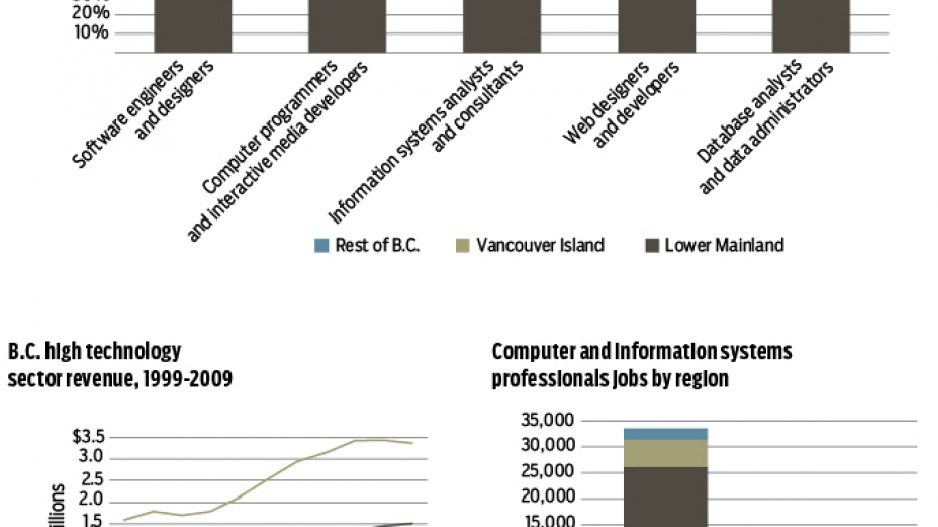Job seekers looking for a career in programming or interactive media might have a harder time staying in their chosen profession if they don’t have a good sense of their career path at the outset.
According to the provincial government’s WorkBC website, over the next few years, the Lower Mainland is expected to have an oversupply of talent in computer and information systems professions, including careers in programming, software engineering, interactive media and web design.
Darrell Hadden, president at Graphically Speaking, noted the number of graduates in programming and interactive media programs continues to grow in B.C. But these newly trained workers lack the hands-on experience needed for the many large-scale web-related projects currently being developed.
“That’s where the big skills shortage is,” said Hadden. “In the medium-sized to large systems, understanding the IT side of it and understanding usability, information architecture and putting it all together so it’s a useful tool.”
In the meantime, companies such as Graphically Speaking have been importing talent to meet client needs. Whether locally trained professionals will gain the needed experience will depend on whether they receive the necessary on-the-job project management experience in large projects.
“Companies are hiring people with certifications and employing them for Internet marketing projects, social media, SEO, blogs, those types of services. But the problem is, those jobs don’t teach them about big, complex websites, which is where the skills shortage is.”
Nevertheless, local opportunities will continue to grow in Internet-related careers. WorkBC estimates another 7,200 jobs will be created in the sector by 2015. That would increase the total employment of the computer and information systems sector to more than 40,000.
That’s likely to contribute to the sector’s overall growth by the middle of the decade. According to BCStats, industry revenue from Internet publishing, data processing, hosting and related services has more than doubled between 1999 and 2009 to $3.4 billion, accounting for 18% of the tech sector’s overall $18.8 billion in revenue.
“These people coming out with these degrees; they are our future,” said Hadden. “But thinking about your career path is very, very important.”




